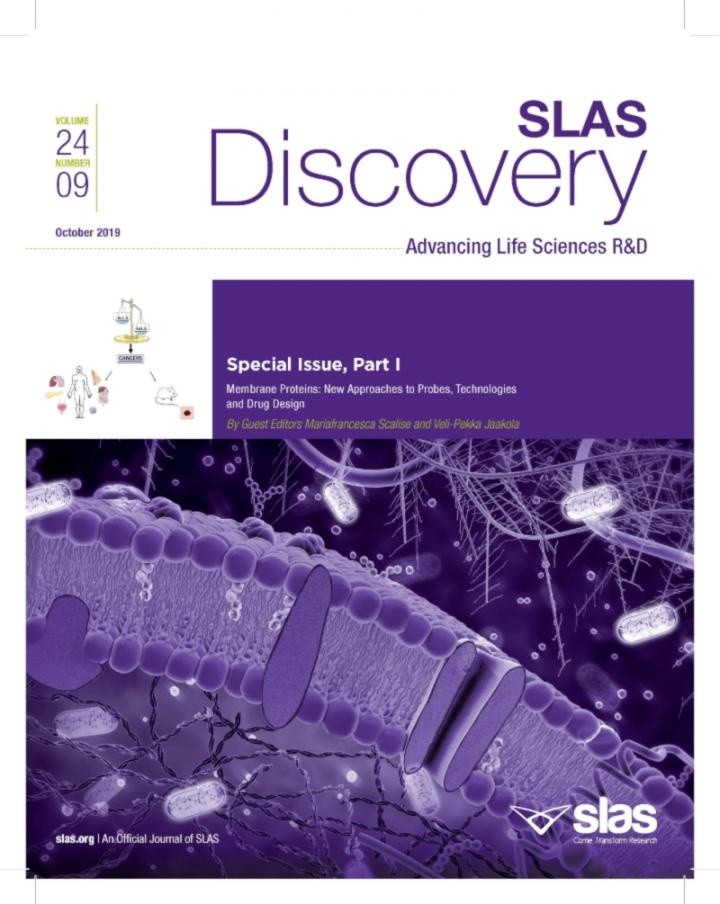
Oak Brook, IL - October's SLAS Discovery features part one of a two-part special issue on "Membrane Proteins: New Approaches to Probes, Technologies and Drug Design." Part two of this special edition will be featured in December.
In her editorial, October's Guest Editor Mariafrancesca Scalise, Ph.D., (University of Calabria, Italy) outlines the importance of membrane proteins in drug design and explains her rationale behind the selection of articles included in the issue. Because of their involvement in the maintenance of cell homeostasis, membrane proteins have become attractive targets for the design of novel drugs which means a deeper knowledge of their biology is required now more than ever.
In addition to Scalise's editorial, October's SLAS Discovery includes the following reviews and original research papers:
- Cysteine Residues of SLC Membrane Transporters as Targets for Drugs
- Targeting the Mitochondrial Potassium Channel Kv1.3 to Kill Cancer Cells: Drugs, Strategies, and New Perspectives
- A Therapeutic Role for the F1FO-ATP Synthase
- Identification of the Tetraspanin CD9 as an Interaction Partner of Organic Cation Transporters 1 and 2
- High-Throughput Fluorescence Polarization Assay to Identify Ligands Using Purified G Protein-Coupled Receptor
- SLC6A14, a Pivotal Actor on Cancer Stage: When Function Meets Structure
Dr. Scalise is a researcher in the Biochemistry and Molecular Biotechnologies Unit at University of Calabria and has been studying plasma membrane, lysosomal and vesicular transporters of amino acids and organic cations since 2007. From 2009 - 2010, she worked for the World Health Organization in Lyon, France, where she was involved in the study of transforming properties of human papillomavirus.
© 2025 HNGN, All rights reserved. Do not reproduce without permission.








